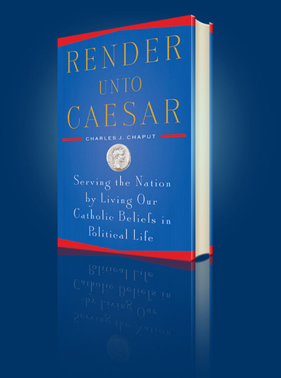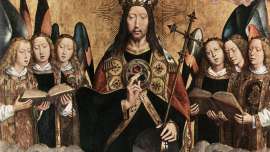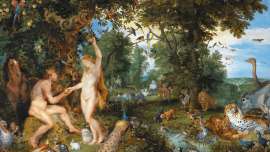 David Scott has written a companion and study guide to Archbishop Charles J. Chaput’s bestselling, Render Unto Caesar: Serving the Nation By Living Our Catholic Beliefs in Political Life (Doubleday, 2008).
David Scott has written a companion and study guide to Archbishop Charles J. Chaput’s bestselling, Render Unto Caesar: Serving the Nation By Living Our Catholic Beliefs in Political Life (Doubleday, 2008).
The study guide follows the book’s 12 chapters, summarizing for each the main points and offering a prayer, Scriptures, Catholic teaching, and background on the key people and works cited. Published by the Archdiocese of Denver, the study guide will be used in high schools and colleges of the Archdiocese.
Below is a news story on the study guide, followed by an excerpt.
To read or download the Study Guide, click here.
________________
Archbishop’s bestselling book on faith and politics now in paperback
By Roxanne King
Denver Catholic Register (August 12, 2009)
Archbishop Charles Chaput’s bestselling book of 2008, “Render Unto Caesar,” which explored the intersection of faith and politics, is now available in paperback. It was released as a paperback Aug. 4.
The archbishop is a Capuchin Franciscan and has led the Denver Archdiocese since 1997. He is a former member of the U.S. Commission on International Religious Freedom.
In “Render Unto Caesar” (Doubleday, $14) Archbishop Chaput addresses the right role of Catholic faith in American public life. Noting that religious witness has always had a vigorous and positive role in American culture, he urges Catholics to live their faith authentically in their personal lives and in the public square, declaring that their moral witness is the greatest gift they can give the nation and that American democracy depends on just such an engaged citizenry.
Based on the success of the hardcover edition, the paperback is expected to do well. Within three weeks of its release last August the hardcover version of “Render Unto Caesar,” which won praise from reviewers in both the secular and Catholic press, made it to No. 27 on the New York Times best seller list—edging out then-Sen. Joe Biden’s “Promises to Keep”—and was ranked No. 10 on the Denver Post’s local best seller list.
Trace Murphy, editor-in-chief and associate publisher of Doubleday Religion, said the hardcover edition not only sold well, but went through several printings. “Its success in hardcover does make it an easy decision to publish a paperback edition,” he said. “But aside from that ‘Render Unto Caesar’s’ content will be valuable and germane for years to come. Because of this we had already planned on a paperback even before the official publication of the hardcover.”
John L. Allen Jr., senior Vatican correspondent for CNN and National Public Radio, and a senior correspondent for the National Catholic Reporter, is among those who have praised the book.
“This isn’t just a book for Catholics,” Allen asserted. “It’s for anyone who cares about the state of America’s soul.”
In other news related to the book, author-scholar David Scott, a former editor of Our Sunday Visitor, has penned a study guide companion to it. The study guide has been published for use by students at the two archdiocesan high schools this fall. It is expected to be published for a wider audience within a year.
“In my opinion, ‘Render Unto Caesar’ is one of the most important books in the history of the American Church,” Scott said. “It’s a book for the ages, but it’s a book for right now, too. Any Catholic who wants to stay faithful to Christ and to make a difference for Christ in this culture is going to have to wrestle with the issues that Archbishop Chaput raises in this book.”
Scott said he hopes the study guide will open up the full depth of “Render Unto Caesar” to youths and adults.
“‘Render Unto Caesar’ is a small book and it’s easy to read. For those reasons it might seem almost deceptively simple,” he said. “What the study guide does is to show how the book is founded upon some very deep reflection—on Scripture, on the Church’s social teaching, on American history and Church history, and on trends in our culture.”
The study guide follows the book’s 12 chapters, summarizing for each the main points and offering a prayer, Scriptures, Catholic teaching, and background on the key people and works cited.
“‘Render Unto Caesar’ really could—and should—serve as a basic text for classes in American history, in political science, in addition to Catholic social teaching,” Scott said. “My hope is that the study guide will make it easier to do that.” The idea for the study guide came from Richard Thompson, superintendent of the Denver Archdiocese’s Catholic schools. He said Scott’s work “hit the mark.”
“It will be a great resource for adult groups and college students,” Thompson said, adding that he plans to use it in principal and teacher formation. Scott said he feels the archbishop’s book should be required reading for Catholics, particularly for those in government.
“I’d like to see Catholics around the country buying copies of this new paperback edition and mailing them to their elected officials with a note encouraging them to read it and to discuss it with their colleagues and constituents,” he said. “I also think we need to get ordinary Catholics talking about these things, too—in their parishes, in small groups, in associations like the Knights of Columbus and Legatus. So my hope is that with a study guide it might help facilitate those kinds of discussions.”
________________________________
Prayer
Father in heaven, You have created us in your image and likeness, and made us to seek you. In your only Son Jesus Christ, you destined us to become your sons and daughters.
Lord, you look down from heaven, and you see that we have gone astray. Thinking ourselves wise, we have become fools. For only the fool says in his heart, “There is no God.”
Turn our hearts from our idols, the works of our hands, that we might find you, our Creator, in the works of your creation, especially in the human person, whom you have made a little less than God. so wonderfully wrought and fearsomely made.
We ask this in the name of Jesus Christ, the image of the invisible God, the first-born of all creation, who lives and reigns with you and the Holy Spirit, one God, for ever and ever.
(Compare Romans 1:18–25; 1 Corinthians 1:20–25; Psalms 8:4–6; 14:1–3; Colossians 1:15)
Scripture
Every human person is created by God, in his image and likeness, and is his “offspring.”
– Genesis 1:26
– Psalm 139:13–18
– Psalm 8:4–8
– Isaiah 49:15–16
– Acts 17:28
In Jesus Christ, the firstborn of many brethren, we know God as our Father, and we know all men and women as brothers and sisters, for whom Christ in his love has died, and with whom he has united himself in a personal way.
– Romans 8:29
– Galatians 2:20
– Galatians 4:4–6
– Romans 8:15–17
– 1 Corinthians 8:11
– Romans 14:15
– Matthew 25:31–46
In his love, God has destined each person, from before the foundation of the world, to be his sons and daughters through Jesus Christ and to play a part in his divine plan.
– Ephesians 1:3–10
– Isaiah 49:1
– Jeremiah 1:5
– Galatians 1:15
– Matthew 25:31–46
Men and women were made to live, not alone or in solitude, but in society; the model of that society is the Church.
– Genesis 2:20, 23
– Ephesians 2:19:20–22
– Philippians 3:20
– Acts 2:44–47; 4:32–35
God has made every nation on the face of the earth, for the purpose that every man and woman should seek God and find that he is not far from them.
– Acts 17:26–27
– Genesis 22:18
– Acts 3:25
– Luke 24:47
– Matthew 28:18–20
– Acts 2:5–11
Human authority is from God and should serve the purposes of God.
– John 19:11
– Romans 13:1, 3–4
– 1 Peter 2:13–14
– Luke 20:21–26
– Acts 5:28–29
Catechism, Magisterium, and Catholic Social Teaching
Human societies and governments exist to serve the authentic good of the human person—both the person’s material and spiritual well-being.
– Compendium of the Social Doctrine of the Church, nos. 384, 386
– Catechism, nos. 1881, 1886
God, as the author of human society, entrusts the government of society to political authorities who must see themselves as servants of the moral order and as ministers of divine providence.
– Compendium, nos. 396–398
– Catechism, nos. 1884, 1902, 1951, 2235–2237
Authentic democracy is possibly only when it is based on a true conception of the human person, including the persons fundamental right to religious liberty.
– Pope John Paul II, Centesimus Annus, 46
– Compendium, no. 407
– Catechism, nos. 2108–2109
Historical Foundations and Background
Key Catholic figures and works:
Christopher Dawson (1889–1970): One of the most important historians of the 20th century, Dawson advanced a Christ-centered vision of history as the working out of God’s divine plan of salvation. He saw religion as the root of every culture and wrote extensively on the Judeo-Christian foundations of Europe and Western culture, warning of what he saw as the progressive “de-Christianization” of the West. In an unpublished manuscript from 1928, he wrote “Every culture is like a plant. It must have its roots in the earth, and for sunlight it needs to be open to the spiritual. At the present moment we are busy cutting its roots and shutting out all light from above.” Among his books, the most important for the purposes of Archbishop Chaput’s discussion are: Progress and Religion: An Historical Enquiry (1929); Religion and the Rise of Western Culture (1950); The Dynamics of World History (1956).
Other important figures and works: – B. F. Skinner, Beyond Freedom and Dignity (1971) – Rev. Reinhold Niebuhr – Francis Collins – John Polkinghorne
Resources for Further Study
C. S. Lewis – “Men Without Chests” (http://www.columbia.edu/cu/augustine/arch/lewis/abolition1.htm)
For Study, Discussion, and Reflection
1. Archbishop Chaput opens this chapter by discussing the current religious and political situation in France, and especially the election of President Nicolas Sarkozy. Why do you think he does that in a book that he is writing about America? What similarities or dissimilarities do you see between America and France, as the Archbishop describes them?
The Archbishop sees France, and Western Europe in general, as “hollowing out its spirit through pride, greed, self-absorption, the rejection of children, the exclusion of God, and contempt for its own past, including its Christian soul.” Discuss how this description might apply to America today.
2. The Archbishop says that modern atheism comes in two basic styles, “hard” and “soft.” Discuss what he means by each of these characterizations. Now consider again the “hard” style of modern atheism that Archbishop Chaput describes. These atheists seem motivated by an antireligious agenda and have undertaken a deliberate strategy to eradicate religion from the areas of education, science, the media, and law. What can you and your fellow believers do to “push back” against this aggressive form of modern atheism, as the Archbishop suggests we must?
3. Pope John XXIII, in his encyclical letter, Pacem in terris (Peace on Earth, no. 36), offers this beautiful statement of the Catholic vision for human society:
Human society must primarily be considered something pertaining to the spiritual. Through it, in the bright light of truth, men should share their knowledge, be able to exercise their rights and fulfill their obligations, be inspired to seek spiritual values; mutually derive genuine pleasure from the beautiful, of whatever order it be; always be readily disposed to pass on to others the best of their own cultural heritage; and eagerly strive to make their own the spiritual achievements of others. These benefits not only influence, but at the same time give aim and scope to all that has bearing on cultural expressions, economic, and social institutions, political movements and forms, laws, and all other structures by which society is outwardly established and constantly developed.
Discuss this statement, which is also quoted in the Catechism (no. 1886). To what extent does American society today encourage and promote its citizens’ search for spiritual values and beauty? In what ways might America do a better job in promoting authentic values in our arts and other cultural expressions, as well as in our laws and our economic and social institutions?
4. Read again the quotation from religious pollster George Barna that comes near the end of this chapter. Do you agree with his assessment? Is it true about you or the people you know? What can you do to make a more “tangible commitment to knowing and loving God, and to allowing him to change [your] character and lifestyle”? Why is this kind of “conversion” important to the renewal of America?
5. Archbishop Chaput quotes the historian Paul Johnson’s distinction—that America is “a moral and ethical society without a state religion.” Discuss what this means in light of what the Archbishop calls “Christianity’s formative role in American life.”
Discuss the Archbishop’s argument that American democracy cannot be sustained without reference to the religious convictions, thoughts, and vocabulary that shaped its institutions. Many people of good will argue quite to the contrary—that we can solve America’s problems as a nation without reference to religious faith or to the values derived from America’s Christian heritage. Why does the Archbishop disagree? Why does he believe that “unless we solve our problems in a way consistent with our founding beliefs and principles, we will become a very different nation”?
6. C. S. Lewis concludes his lecture, “Men Without Chests,” with these words: “We make men without chests and expect of them virtue and enterprise. We laugh at honor and are shocked to find traitors in our midst. We castrate and bid the geldings be fruitful.”
It is a provocative quote. How does it pertain to the argument that Archbishop Chaput has made in this chapter? To what extent is America in danger of becoming a nation without a soul, a people no longer capable of the virtues necessary to defend and realize the purposes for which this nation was founded?
7. In his book, The Republic, Religions and Hope (2005), French President Nicolas Sarkozy writes: “I am of Catholic culture, Catholic tradition, Catholic faith. Even if my religious practice is episodic, I acknowledge myself as a member of the Catholic Church.”
Discuss the strengths and weaknesses of this statement of faith in light of the Archbishop’s argument in this chapter. What does it mean to be a Catholic whose “religious practice is episodic”? To what extent is the kind of “cultural Catholicism” professed by President Sarkozy symptomatic of what the Archbishop describes as the hole in the chest of Europe? Is cultural Catholicism of this type also an issue in the American Church?
Based on the Archbishop’s argument in this chapter, explain why President Sarkozy’s brand of Catholicism is insufficient for meeting the challenges that believers face in America today.


